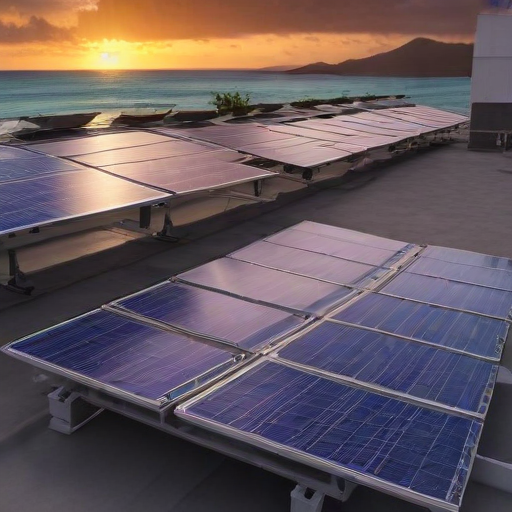Air Date: Week of November 15, 2024
A serene landscape unfolds in Salinas, Puerto Rico, where calm waters meet the lush green mountains under a radiant blue sky, highlighting the island’s natural splendor.
Following the devastation caused by Hurricane Maria in 2017, which severely impacted Puerto Rico’s power grid and left many residents without electricity for extended periods, the island has been striving for a sustainable and reliable energy system. Recent efforts to advance solar energy have triggered mixed reactions. Ruth Santiago, an environmental attorney and member of the White House Environmental Justice Advisory Council, engaged in a conversation with Host Paloma Beltran about the implications of a proposed utility-scale solar project in Puerto Rico.
The island’s ambitious goal of transitioning to 100% renewable energy by 2050 faces challenges, particularly in maintaining reliability during this shift from the fossil fuels currently responsible for about 90% of its energy. The Department of Energy recently announced an $860 million loan for two large-scale solar projects, collectively expected to yield 200 megawatts of solar energy per year—enough to power approximately 43,000 homes. Known as “Project Marahu,” this initiative will become the largest solar and battery installation in Puerto Rico and is spearheaded by Clean Flexible Energy LLC, a subsidiary of AES Corporation and Total Energies Holdings USA.
However, concerns arise due to AES’s management of a local coal plant, which has faced violations of environmental regulations. Santiago expressed her apprehensions regarding the project’s environmental impacts, particularly around biodiversity and the local communities residing near Salinas and Guayama, where the project is set to take place. The region is ecologically significant, featuring prime agricultural land and habitats for various protected species, raising alarms about potential ecological disruption.
Investigative studies on the AES solar projects concluded that they may negatively affect local communities, especially impoverished neighborhoods in close proximity. Santiago emphasized the risks posed by industrial-scale solar developments, such as their reliance on transmission lines and infrastructure vulnerable to severe weather, highlighting the merits of decentralized, rooftop solar projects instead. These smaller installations, which have seen an uptick in various communities, promise more resilience and energy security, particularly during extreme weather events.
Looking ahead, Santiago advocates for a “just transformation” in energy approaches, one that prioritizes the well-being of all communities, especially those historically underserved. She urged the government to harness disaster recovery and mitigation funding to promote rooftop solar installations and other energy-efficient technologies that would empower communities to sustain themselves independently during crises.
The dialogue on the future of energy in Puerto Rico remains critical as stakeholders work towards a more equitable and environmentally conscious energy landscape. Despite the challenges faced, there is clear potential for impactful change through community advocacy and innovative energy solutions.
Ultimately, the goal remains to transform Puerto Rico into a resilient hub of renewable energy, ensuring all residents can thrive and work together toward a brighter, more sustainable future.
